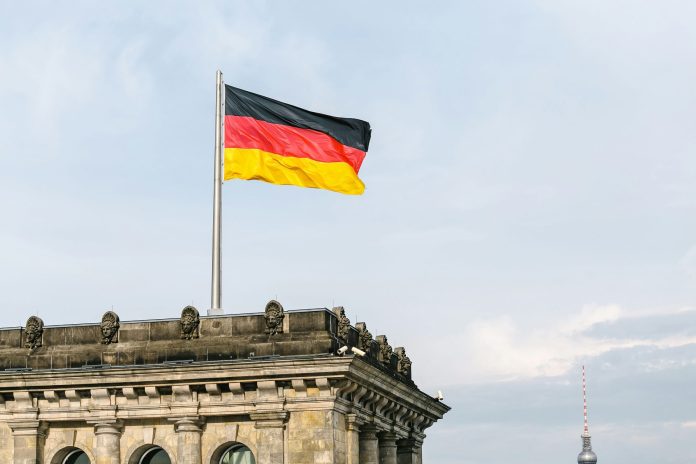Markets have reacted positively to Germany’s election outcome, with the euro rising, stock markets advancing, and increased hopes for economic reforms and fiscal stimulus under the leadership of Friedrich Merz.
Nigel Green, CEO of deVere Group, a global financial advisory firm, notes that despite the need for coalition negotiations by Merz’s CDU/CSU bloc, there is growing optimism for a more expansionary economic approach under his leadership.
In addition, the evolving geopolitical situation, particularly the uncertainties surrounding US foreign policy and Russia’s positioning, has increased the pressure on Berlin to act decisively.
“Germany, the economic powerhouse of Europe, has endured two consecutive years of contraction, raising urgent questions about its fiscal policy and growth prospects,” says Nigel Green.
“At the heart of investor interest is the long-debated ‘debt brake’ that caps structural budget deficits. Though reform prospects remain uncertain, expectations for greater government expenditure—particularly on defense—have risen sharply in recent days.”
Investors are optimistic that the new government will take a more proactive stance on economic stimulus.
The deVere CEO says: “European equities have been testing record highs, even as global markets remain cautious about US trade policies and geopolitical uncertainty.
“The potential relaxation of Germany’s rigid fiscal rules could provide a boost to the eurozone economy, offering significant upside for risk assets.”
A decisive shift in fiscal policy would impact multiple sectors.
German defense stocks have already seen a strong start to 2025, with companies standing to gain from a government committed to military expansion. Europe’s broader rearmament efforts are likely to accelerate, with hundreds of billions of euros in potential investment on the horizon.”
He continues: “The election outcome is giving investors confidence that Germany will take decisive action to strengthen its economy and global position. A coalition that prioritizes fiscal expansion, defense spending, and pro-business reforms would present compelling opportunities for global investors.
The geopolitical landscape is shifting rapidly, with European leaders recognizing the urgency of fortifying their security.
“Friedrich Merz’s remarks about the need for Europe to bolster its own defenses, particularly in response to a less predictable US foreign policy and the strategic pressures from Russia, underscore a new reality for markets.”
Defense sector stocks have been outperforming, and should Berlin commit to increased spending, European industrial giants will benefit. However, the composition of Germany’s next coalition remains critical. Left-leaning parties would likely curb military expenditure, tempering some of the recent enthusiasm in the sector.
The election outcome is also pivotal for Germany’s struggling real estate sector. Investors are watching closely to see how new policies will address housing shortages and rent freezes.
For the automotive industry—responsible for nearly 7% of Germany’s DAX index—policy decisions on electric vehicle incentives and emissions regulations will be closely scrutinized.
“While German automakers have lagged their US counterparts, the potential for regulatory easing and new incentives could provide tailwinds for the sector,” notes Nigel Green.
At the same time, industrial policy remains a pressing issue. The deVere boss explains: “The prospect of increased government infrastructure investment—particularly in energy and transport—could unlock significant opportunities for global investors seeking exposure to European growth.
The euro, which recently dipped amid fears of US tariffs, has rebounded in response to Germany’s election result.
Nigel Green says: “Should the next government pursue a more expansionary fiscal path, confidence in the single currency could strengthen further. Meanwhile, European equities remain at a valuation discount to US markets, presenting a potential buying opportunity for global investors.
“Yet, challenges remain. The shape of Germany’s next coalition will dictate the extent of fiscal reform, and there is no guarantee that significant policy shifts will materialize. A prolonged negotiation process could introduce volatility, particularly if spending expectations are not met.
“The economic future of Germany—and by extension, Europe—will be shaped by the policies of its new government. Investors are watching closely to see if the opportunity for reform translates into action,” says Nigel Green.
He concludes: “While uncertainty remains, the underlying market trends are clear. Germany’s political transition signals a critical moment for global investors, with potential opportunities in defense, infrastructure, and currency markets.
“If Berlin embraces reform, the effects will be felt across global financial markets, making this a moment to watch—and capitalize on.”



 Bitcoin
Bitcoin  Ethereum
Ethereum  Tether
Tether  XRP
XRP  Solana
Solana  USDC
USDC  Cardano
Cardano  TRON
TRON  Lido Staked Ether
Lido Staked Ether  Toncoin
Toncoin  Avalanche
Avalanche